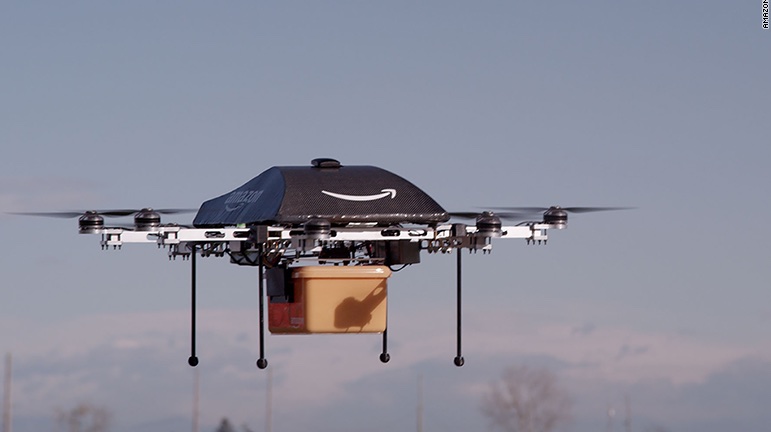
In a bid to create the quicker, more flexible delivery services increasingly demanded by consumers, Walmart has followed Amazon’s lead by patenting airborne stations that will manage fleets of drones delivering packages to individuals. The ‘blimps’ will be piloted by on-board crews or remote operators, and will effectively act as mini warehouses serving different regions – possibly aided by smaller ‘shuttle’ airships bringing products from the main warehouse. Fleets of drones will then fly the parcels to customers. This will create a faster, more convenient service than using the retailer’s main warehouses and truck deliveries – although just how fast is yet to be revealed. The drones will be fitted with geo-location tech, meaning they could potentially be programmed to deliver to wherever a consumer is by tracking the GPS on their smartphone.The airships are required to make such deliveries logistically possible. Without them, the drones would need to fly longer distances – currently a slippery task for such relatively small mechanisms and a key obstacle to brands deploying the aerial vehicles in large numbers. Walmart and Amazon’s patents both cater to the type of convenient, fully responsive delivery services consumers now prize – 88% of European consumers now view speed as more important than the brand being ordered (Salmon, 2017).






